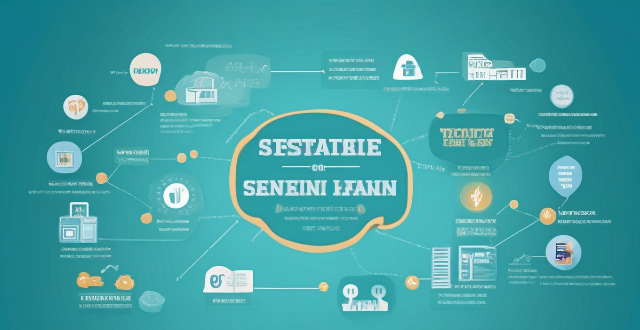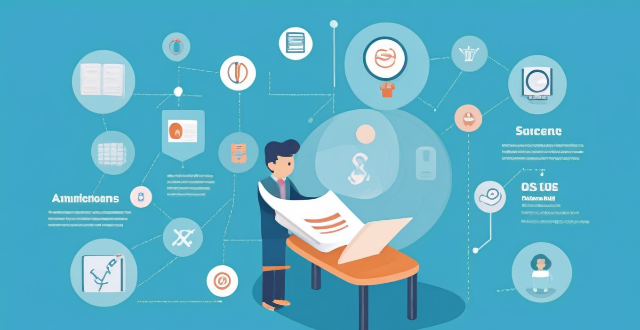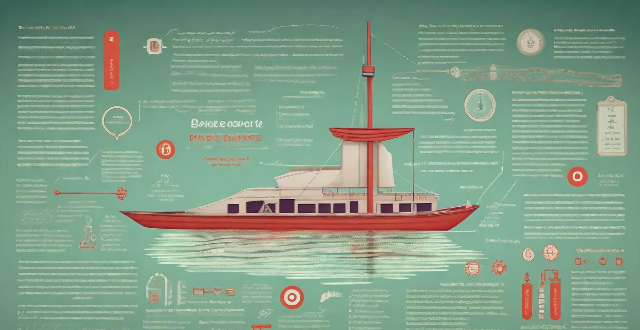Fund Expenses

How do I choose a sustainable investment fund ?
Choosing a sustainable investment fund requires careful consideration of various factors, including your investment goals, the fund's ESG criteria and performance history, the experience of the fund manager, the fund's holdings and alignment with your values, fees and expenses, and ongoing monitoring of your investment. By following these steps, you can select a sustainable fund that aligns with your financial goals and personal values.

How do I manage unexpected expenses within my budget ?
Unexpected expenses can be managed within your budget by establishing an emergency fund, reviewing and adjusting your budget, prioritizing expenses, considering short-term solutions, negotiating and seeking assistance, avoiding taking on debt, planning for future expenses, and staying vigilant with your budget. Start small with saving for emergencies, identify non-essential expenses to cut back on, prioritize essential expenses, consider side hustles or selling unused items for extra income, negotiate bills and seek assistance when needed, avoid high-interest loans, learn from past experiences to anticipate future expenses, and regularly review and adjust your budget as circumstances change.

How do I allocate funds for different educational needs in my budget plan ?
Education is crucial for personal growth, and budgeting for it is essential. Here's how to allocate funds effectively: determine goals, assess finances, create an education fund, prioritize expenses, use a budgeting tool, cut unnecessary expenses, seek financial aid, consider part-time work, and reevaluate regularly.

What is the difference between a fixed deposit and a mutual fund ?
Fixed deposits offer guaranteed returns and low risk but limited growth potential, while mutual funds provide higher growth potential through diversified portfolios but carry more risk.

What are the benefits of having an emergency fund, and how much should it be ?
The importance of an emergency fund cannot be overstated, serving as a financial buffer during unforeseen events like job loss or medical issues. Key benefits include reduced stress, avoidance of debt, improved resilience, and protection of credit scores. The recommended amount varies but is often three to six months' worth of essential expenses, adjusted based on individual circumstances.

Is it possible to lower my monthly utility expenses without sacrificing comfort ?
Yes, it is definitely possible to reduce your monthly utility expenses without compromising your comfort. Here are some tips and strategies that you can implement: - **Energy-efficient appliances**: Replace old appliances with energy-efficient models to save on electricity bills. - **Thermostat settings**: Adjust your thermostat settings to save money on heating and cooling. - **Lighting**: Use LED bulbs to use less energy and last longer than traditional incandescent bulbs. - **Water usage**: Fix leaks to save on your water bill. - **Insulation**: Improve insulation to keep your home warm in winter and cool in summer, reducing the need for heating and cooling. - **Unplug electronics**: Unplug electronics when not in use to save on your electricity bill. - **Shop around**: Shop around for better deals on your utilities. - **Be mindful of usage**: Be aware of how much water, gas, and electricity you're using to identify areas where you can cut back.

What are some effective personal finance management strategies ?
Managing personal finances effectively is crucial for achieving financial stability and long-term success. Here are some effective personal finance management strategies: 1. Create a budget that tracks income, expenses, savings, and adjustments. 2. Build an emergency fund with at least 3-6 months' worth of living expenses in a high-yield savings account or money market fund. 3. Pay off high-interest debt using the snowball or avalanche method. 4. Invest for long-term goals by starting early, diversifying, and staying consistent. 5. Protect your finances with health insurance, disability insurance, and life insurance. 6. Plan for retirement by starting early, maximizing contributions, and investing wisely. 7. Educate yourself through reading books, taking courses, and seeking professional advice.

How can I prioritize my educational expenses within my budget plan ?
To effectively prioritize educational expenses within a budget plan, start by identifying clear educational goals and assessing available resources such as scholarships and savings. Create a detailed budget outlining all expected costs, including tuition, books, and transportation. Evaluate each expense based on its cost versus the benefits it provides towards your goals. If necessary, set up a savings plan to cover any shortfalls in your budget. Regularly track your spending and adjust your budget as needed to stay on track financially while achieving your educational objectives.

Is there a specific formula for allocating funds in a startup budget ?
This guide provides a structured approach for startup budget allocation, emphasizing the importance of understanding the basic components of a budget and key areas of investment such as product development, marketing and sales, operational expenses, and contingency funds. It suggests following the 50/30/20 rule as a starting point and emphasizes the need for regular reviews and adaptability to ensure scalability and growth.

What are some common pitfalls when creating a household budget ?
When creating a household budget, people often fall intoWhen creating a household budget, people often fall into can lead to financial difficulties and people often fall into common pitfalls that can lead to financial difficulties and make it harder to achieve financial goals. These pitfalls include not tracking expenses, underestimating expenses, ignoring debt repayment, failing to plan for emergencies, and overspending on non-essentials. To avoid these mistakes, people should keep track of all expenses, be realistic when estimating expenses, prioritize paying off high-interest debt, set aside money for emergencies, and limit discretionary spending. By avoiding these pitfalls, people can create a budget that works for them and helps them achieve their financial goals.

How much money do I need to save for retirement ?
Planning for retirement is crucial to ensure a comfortable life after stopping work. The amount of money needed depends on factors like age, expected retirement age, lifestyle, and expenses. This guide helps calculate your retirement savings goal by determining your retirement age, assessing your financial situation, estimating retirement expenses, using retirement calculators, considering inflation and investment returns, and creating a savings plan. By doing so, you can work towards a comfortable and secure retirement.

What are some tips for managing an education budget effectively ?
The article provides effective tips for managing an education budget, including creating a budget plan, tracking spending, looking for scholarships and grants, considering part-time work or freelancing, reducing unnecessary expenses, and planning ahead for future expenses. It emphasizes the importance of staying organized, prioritizing expenses, and seeking out funding opportunities to ensure that students have the resources they need to succeed in their academic pursuits.

How much does it cost to go to an idol concert ?
Attending an idol concert can be costly due to various factors such as ticket prices, travel expenses, merchandise costs, and additional fees. To manage these expenses, it's recommended to set a budget, compare prices, take advantage of group discounts, bring your own snacks, and consider the resale market for tickets.

How can I create an effective education budget plan ?
Creating an effective education budget plan involves identifying educational goals, determining expenses, evaluating financial resources, creating a budget timeline, tracking spending, and reviewing and revising the budget regularly. This process helps ensure that you have the necessary funds to cover your educational expenses while achieving your academic objectives responsibly.

How can governments fund economic stimulus plans effectively ?
Governments can fund economic stimulus plans through increased government spending, tax cuts, issuing bonds, monetary policy measures, privatizing assets, international aid and loans, and budget reallocation.

What are the tax implications of receiving a scholarship ?
Receiving a scholarship can offset higher education costs, but understanding the tax implications is crucial. Scholarships for tuition, fees, and educational expenses are typically non-taxable, but those covering personal expenses may be taxed. Accurate record-keeping, separating expenses, consulting tax professionals, and planning ahead are key to managing these implications effectively.

Are there alternatives to taking out a student loan for college expenses ?
There are several alternatives to student loans for covering college expenses, including scholarships and grants, work-study programs, employer tuition assistance, military benefits, and crowdfunding and community support. Scholarships and grants are typically awarded based on academic merit or financial need, while work-study programs allow students to earn money through part-time jobs. Employer tuition assistance programs may cover all or a portion of tuition costs, and serving in the military can provide access to educational benefits like the GI Bill. Crowdfunding platforms and community organizations can also provide financial support for students in need.

How can I maintain my financial freedom once I achieve it ?
The text discusses strategies for maintaining financial freedom, including creating a budget and sticking to it, building an emergency fund, investing wisely, living below one's means, and continuously learning and growing. It emphasizes the importance of discipline, planning, and effort in sustaining financial independence.

What are some common mistakes people make with their personal finances ?
The text discusses the common mistakes people make with their personal finances, including living beyond their means, not having an emergency fund, not investing for retirement, ignoring debt, and not saving enough for large expenses. It offers tips on how to avoid these mistakes, such as creating a budget, setting aside money for emergencies, starting early with retirement planning, prioritizing high-interest debt, and saving in advance for large expenses. The text emphasizes the importance of discipline, planning, and awareness in managing personal finances effectively.

What is the significance of the Green Climate Fund in supporting climate initiatives globally ?
The Green Climate Fund (GCF) supports climate initiatives globally by providing financial and technical resources for mitigation and adaptation projects. It encourages private sector participation, strengthens institutions, and promotes gender equality and social inclusion in climate actions.

What are some successful women-led philanthropic projects that have made a significant impact in their communities ?
The article discusses several successful women-led philanthropic projects that have made significant impacts in their respective fields. These include The Malala Fund, which aims to empower girls' education globally; The Empowerment Center for Women in Saudi Arabia, which provides skills training and job opportunities for women; The Global Fund for Women, which supports grassroots women's groups worldwide; The Akilah Institute, which offers quality education and leadership training to young women in Zimbabwe; and The Women's Refugee Commission, which advocates for the protection of refugee women and children.

How does the issuance of green bonds benefit environmental projects ?
Green bonds are financial instruments designed to fund environmentally friendly projects, offering benefits such as increased funding opportunities, improved project visibility, long-term financing, risk mitigation, market growth and innovation, policy and regulatory support, and community and environmental impact. These bonds not only benefit the specific environmental projects they aim to fund but also contribute to a broader shift towards sustainable finance and environmental stewardship.

How can I achieve financial freedom ?
Financial freedom is a state where an individual has enough savings, investments, and cash flow to live comfortably without depending on a regular job. It requires careful planning, discipline, and patience. This guide provides strategies for achieving financial freedom, including setting clear goals, creating a budget, building an emergency fund, paying off high-interest debt, investing wisely, increasing income, and living below your means. By following these strategies, you can take control of your finances and work towards achieving financial freedom over time.

What are the best practices for setting a personal budget ?
The article outlines best practices for setting a personal budget to achieve financial stability and success. It suggests determining income, listing expenses, setting financial goals, creating a budget plan, tracking spending, and adjusting the budget as needed.

How can I create a successful savings plan ?
Creating a successful savings plan is essential for achieving financial goals, such as saving for a down payment, retirement, or an emergency fund. The steps to create a successful savings plan include setting clear financial goals, analyzing the current financial situation, establishing a budget, automating savings, choosing the right tools, monitoring and adjusting the plan, and seeking professional advice. Consistency and perseverance are key to success in sticking to the plan.

How can I stick to my budget without feeling deprived ?
Sticking to a budget is easier when you don't feel deprived. Here's how to do it: 1. **Set Realistic Goals**: Break down your financial goals into smaller, more manageable ones and make them specific and measurable. 2. **Prioritize Your Expenses**: Categorize your expenses into essential and non-essential, and differentiate between needs and wants. 3. **Find Alternatives**: Consider DIY projects and buying used items instead of new ones to save money. 4. **Track Your Spending**: Use budgeting apps or visual aids to monitor your expenses and progress toward your financial goals. 5. **Reward Yourself**: Allow yourself small treats for sticking to your budget and plan larger rewards for achieving long-term financial goals. 6. **Stay Motivated**: Keep reminders of your financial goals visible and share your goals with friends or family members who can provide support.

How can women effectively manage their wealth ?
Managing wealth is crucial for women to achieve financial security. Tips include setting SMART financial goals, creating a budget, building an emergency fund, investing wisely, prioritizing retirement savings, and seeking professional advice. By following these steps, women can effectively manage their wealth and achieve their financial goals.

How much money do I need to achieve financial freedom ?
Financial freedom is a subjective term that varies from person to person. It generally means having enough income-producing assets to cover your expenses without relying on a job. The amount of money needed to achieve financial freedom depends on several factors, including lifestyle, location, and future goals. To determine your financial freedom number, consider factors such as lifestyle expenses, future goals, emergency funds, and retirement planning. Strategies to achieve financial freedom include building passive income streams, investing wisely, living below your means, and creating a plan and sticking to it. By following these strategies, you can reach your financial goals faster and achieve financial freedom over time.

How can climate finance be leveraged to support renewable energy projects ?
Climate finance plays a crucial role in supporting renewable energy projects. Here are some ways to leverage it: 1. Public-Private Partnerships (PPPs) can be used to attract private investment into renewable energy projects. 2. Green Bonds can be issued to fund environmentally friendly projects such as solar and wind farms. 3. Carbon Pricing Mechanisms can generate revenue that can be invested in renewable energy projects. 4. International Climate Finance Initiatives can provide funding for renewable energy projects in developing countries. 5. Crowdfunding Platforms offer another way to raise funds for renewable energy projects. By using a combination of these strategies, we can accelerate the transition towards a more sustainable future.